The Titan Prometheus is punished by Zeus for attempting to steal fire for humankind.
Related Movies

Veronica (2019)
A descendant of ancient Greek sirens searches for love on modern day Long Island. After many failed relationships she worries that the problem lies with her, but she remains determined to find her soulmate.

Erebos (2017)
Two nieces, Tilda and Harriët, meet again after a long time. But now, a rat named Erebos has come between them.
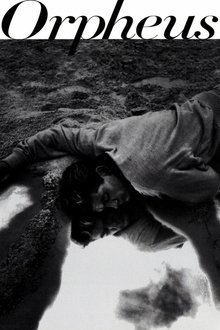
Orpheus (1950)
A famous poet in postwar Paris, scorned by the Left Bank youth, is in love with both his wife Eurydice and a mysterious princess. Seeking inspiration, the poet becomes obsessed and follows the princess from the world of the living to the land of the dead.

The Golden Bouzouki (2021)
Johnny Diamonds stars in this musical adventure set in ancient mythological greece. Johnny Orpheus returns home to the peaceful village of Salamis to find that it has come upon troubled times. Assembling a crew of heroes like no other, Johnny sets sail on a song-filled voyage of adventure to obtain the Golden Bouzouki, a legendary musical instrument of divine origin which is said to bring peace to the hearts of all mankind. (Not Rated, 1 hour, 48 minutes)
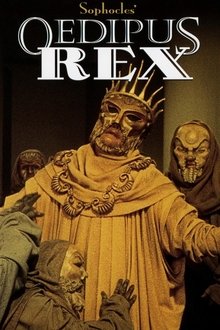
Oedipus Rex (1957)
The story of Oedipus' gradual discovery of his primal crime, killing his father and marrying his mother, filmed by the famed British theatrical director Sir Tyrone Guthrie. This elegant version of Sophocles' play adds a brilliant stroke: the actors wear masks just as the Greeks did in the playwright's day.

Stop-Motion (2024)
After a tragic accident, a woman cares for her injured mother while coping through stop-motion filmmaking, mending strained family ties, and seeking growth amidst grief.

Hadestown (NaN)
In a post-apocalyptic world inspired by New Orleans, the tragic love of Orpheus and Eurydice is intertwined with the complex relationship of Hades and Persephone. Eurydice, struggling with poverty, is lured to the industrial underworld of Hadestown by Hades, while Orpheus, a struggling musician, ventures down below to bring her back.
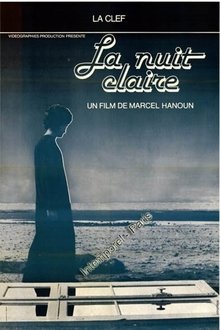
The Bright Night (1978)
In a montage alternating with moments of Nigel Rogers' interpretation of the most beautiful passages from "Orpheus," the opera by Striggio and Monteverdi, La Nuit Claire is an evocation of the celebrated myth, within which images of the love between its two modern protagonists, Anne and Julien, are inscribed. - BAM/PFA

EXIT MEDEA (2025)
Torn between loyalty to her family, and her love for Jason, Medea attacks her father and flees with Jason to unknown lands. Her brother pursues them. When Jason betrays and abandons her, she is driven to the ultimate act of vengeful destruction.
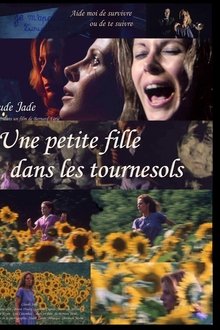
Une petite fille dans les tournesols (1984)
The young teacher Marelle goes in search of her husband who mysteriously disappeared while attending the funeral of a childhood friend.

A Future She Made (2025)
She is the guardian of a prophecy only she believes in. Within four walls, she builds a world of warnings and rituals, keeping her younger brother from crossing the threshold. But when the outside begins to knock, the sanctuary turns into a cage. A psychological tale of fear disguised as protection — and freedom feared more than fate.
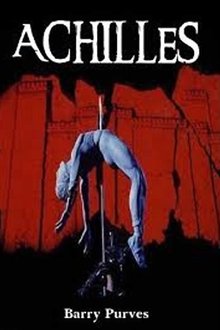
Achilles (1995)
With the loss of Patroclus (his undeclared male lover), Greek warrior Achilles returns to the Trojan War.
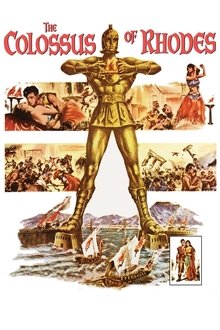
The Colossus of Rhodes (1961)
While on holiday in Rhodes, Athenian war hero Darios becomes involved in two different plots to overthrow the tyrannical king, one from Rhodian patriots and the other from sinister Phoenician agents.
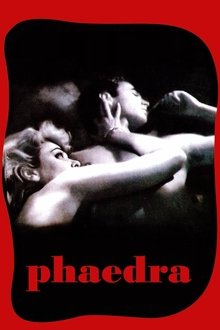
Phaedra (1962)
A modern retelling of the Greek myth of Phaedra. The young and fiery second wife of an extremely wealthy shipping magnate meets her estranged stepson Alexis and sparks immediately fly. Their love seems doomed from the beginning when she convinces him to come to Paris to meet his father.

The Poet (2023)
A modernized telling of the Greek Mythology romantic tragedy of Orpheus and Eurydice.
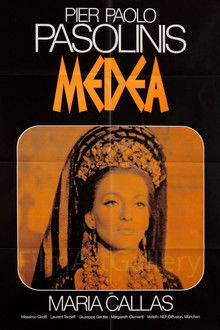
Medea (1969)
Based on the plot of Euripides' Medea. Medea centers on the barbarian protagonist as she finds her position in the Greek world threatened, and the revenge she takes against her husband Jason who has betrayed her for another woman.
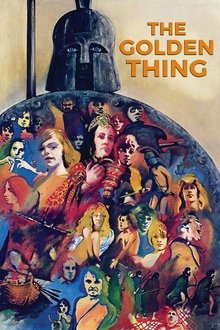
The Golden Thing (1972)
Eleven-year old Jason and his companions, including Hercules and Orpheus, go with the ship "Argo" in the search for the Golden Fleece. With wit and cunning to overcome various obstacles until they reach the destination of their fantastic journey. The experiment is not only due to the popularization or naive glorification of a myth, but the search space occupied by fact that the heroes of antiquity were actually very young.

Penthesilea: Queen of the Amazons (1974)
Penthesilea, the first of six films made by Laura Mulvey and Peter Wollen, traverses thousands of years to look at the image of the Amazonian woman in myth. It asks, among other questions, is the Amazonian woman a rare strong female image or is she a figure derived from male phantasy? The film explores the complexities of such questions, but does not seek any concrete answers.